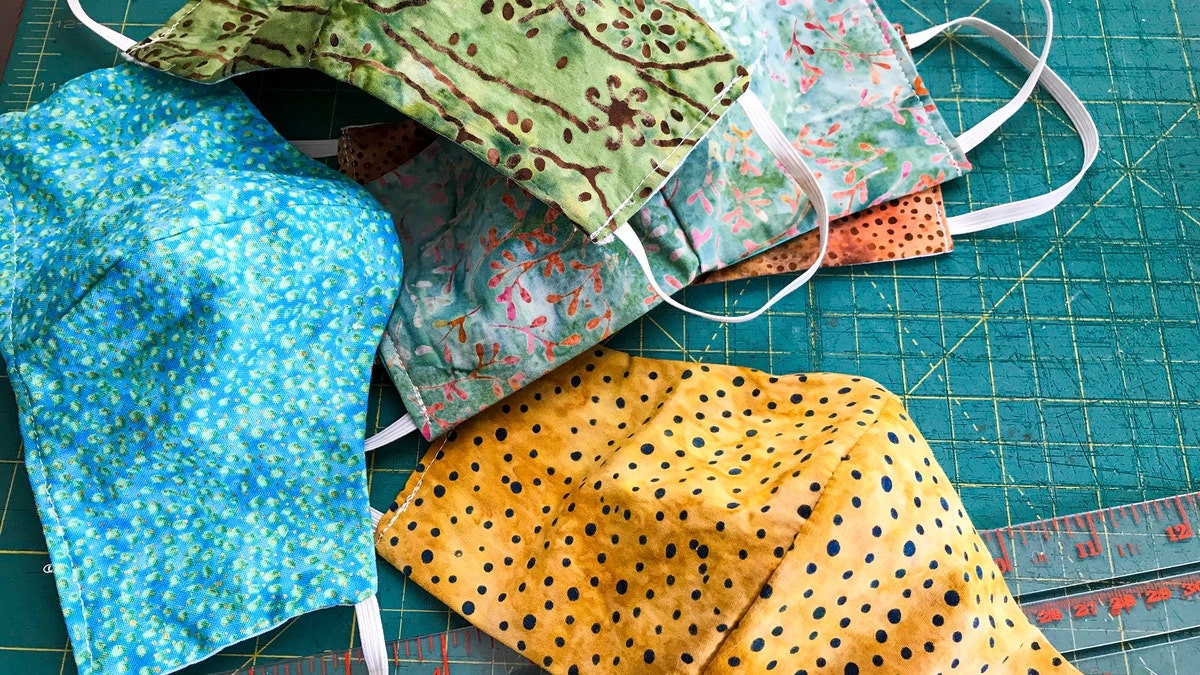Fox News Flash top headlines for October 13
Fox News Flash top headlines are here. Check out what's clicking on Foxnews.com.
Cloth face masks are useful in protecting against the novel coronavirus — but only if you wash them after every use, according to a new study that found that reusing these face coverings over and over without washing them can increase the risk of contamination.
Additionally, the masks must be washed at high temperatures after each use to ensure they are thoroughly decontaminated, according to the analysis from the Kirby Institute at the University of New South Wales at Sydney that was recently published in BMJ Open.

The World Health Organization (WHO) says cloth face masks would be washed with laundry detergent and water that’s at least 60 degrees Celsius — or about 140 degrees Fahrenheit. (iStock)
The analysis is based on a randomized controlled trial published in 2015 that looked into how effective cloth face masks are in preventing viral infections from common respiratory pathogens such as the flu, rhinoviruses (common cold viruses), and seasonal coronaviruses. The study at the time found that two-layered cotton cloth masks “were not as effective as surgical masks in a hospital setting and that they potentially increased the risk of infection when compared with wearing no mask at all,” per a news release from the university. However, the researchers who conducted the new analysis now argue that the way the cloth masks were washed may explain why they performed so poorly in the original study.
More specifically, the so-called “washing data” was self-reported by health care workers in Vietnam in 2011 who at the time worked in “high-risk wards in a health care setting,” per the news release. The study, according to the researchers who conducted the analysis, is the only randomized controlled trial “ever conducted on the efficacy of cloth masks in preventing viral infections.”
RISKIEST BEHAVIORS TO AVOID DURING CORONAVIRUS PANDEMIC, ACCORDING TO AN EXPERT
Most health care workers in the original study — about 77% — reported washing their masks by hand. But in the analysis, the researchers found that the health care workers’ risk of infection more than doubled when their cloth face masks were washed this way compared to when the masks were washed in the hospital laundry machines.
What’s more, “There was no significant difference in infection between [health care workers] who wore cloth masks washed in the hospital laundry compared with medical masks,” the analysis concluded.
Indeed: “Given the potential implications for health workers or community members who are using cloth masks during the pandemic, we did a deep dive into the 2011 data on whether the health workers in our study washed their masks daily, and if so, how they washed their masks. We found that if cloth masks were washed in the hospital laundry, they were as effective as a surgical mask,” University of New South Wales — Sydney Professor Raina MacIntyre, who conducted the study, said in a statement.
DO YOU HAVE CORONAVIRUS ‘CAUTION FATIGUE’?
The researchers in the original study did not test for SARS-CoV-2, the virus that causes COVID-19, as the virus did not exist at the time. But the researchers who conducted the analysis in BMJ Open argue that the past findings can still be applied to the novel virus.
“Both cloth masks and surgical masks should be considered ‘contaminated’ after use,” MacIntyre said. “Unlike surgical masks, which are disposed of after use, cloth masks are re-used. While it can be tempting to use the same mask for multiple days in a row or to give it a quick hand-wash or wipe-over, our research suggests that this increases the risk of contamination.”
THE NOVEL CORONAVIRUS MAY INADVERTENTLY FUNCTION AS A PAIN RELIEVER, STUDY SUGGESTS
“This has become a flashpoint for the debate around cloth masks between pro and anti-mask groups, both of which have focused on our 2015 study in their arguments – but a more detailed look at the washing data suggests that hand-washing made the cloth masks riskier, rather than the cloth mask itself. When we break the data down in this new way, comparing machine washing with handwashing, a machine-washed cloth mask is as effective as a surgical mask,” MacIntyre continued. “There is much research on the design, fabric and construction of masks, but washing is also key for protection.”
The World Health Organization (WHO) says cloth face masks should be washed with laundry detergent and water that’s at least 60 degrees Celsius — or about 140 degrees Fahrenheit.
“The results of our analysis support this recommendation,” said MacIntyre. “The clear message from this research is that cloth masks do work – but once a cloth mask has been worn, it needs to be washed properly each time before being worn again, otherwise it stops being effective.”

